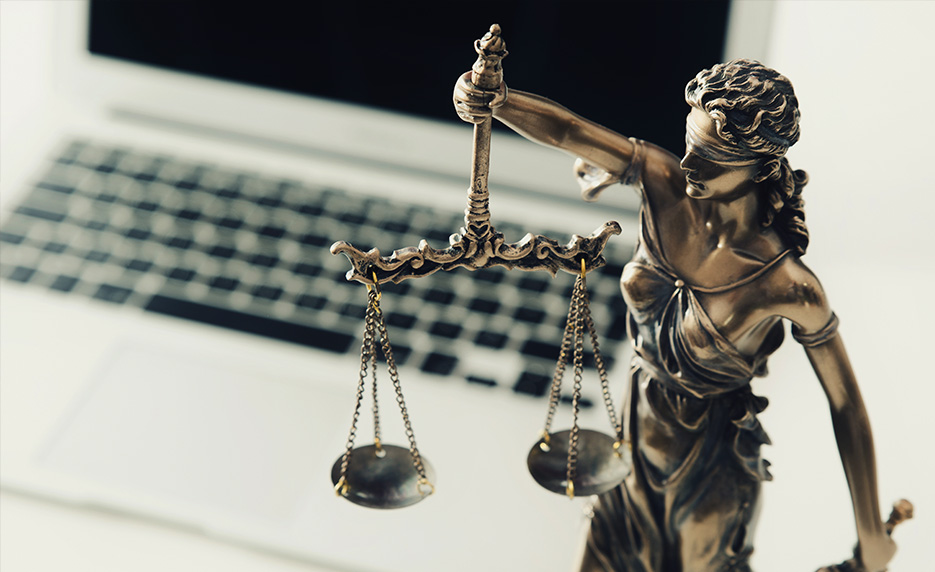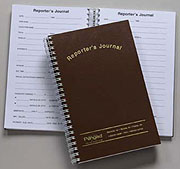How Stenographers Power Accurate Court Reporting in Durham
How Stenographers Power Accurate Court Reporting in Durham
Blog Article
Recognizing Just How Court Reporting Functions: A Key Part in the Justice System
Court reporting plays an essential duty in the legal system. It guarantees that all court room proceedings are recorded precisely. Stenotype reporter utilize specialized tools and methods to create verbatim records. These records offer different purposes, consisting of appeals and lawful clearness. Comprehending the intricacies of court coverage reveals its relevance in keeping the stability of justice. What difficulties do court press reporters face in this advancing area?
The Role of Court Reporters in the Legal System
Stenotype reporter play an important function in the legal system, making certain precise and dependable documents of court room process. They are in charge of recording every spoken word during tests, hearings, and depositions, developing a verbatim transcript that works as an irreversible record. This documentation is critical for charms, providing a foundation for higher courts to assess cases.In addition to recording spoken language, court reporters also help with communication in between lawyers, courts, and other events associated with legal matters. Their work promotes openness and liability within the judicial process.Utilizing specialized tools and software, court press reporters should remain concentrated and conscientious, typically functioning under stress to meet tight deadlines. Their transcripts are not only essential for lawful referral yet additionally for maintaining the integrity of judicial process. Ultimately, court reporters contribute significantly to the fair management of justice, ensuring that all voices are listened to and recorded properly.
Essential Abilities Needed for Court Coverage
Court reporting demands an unique collection of skills that are essential for accuracy and efficiency. Mastery of stenography techniques, strong listening and comprehension capacities, and precise focus to detail are imperative for success in this field. These abilities make it possible for stenotype reporter to create dependable transcripts that function as vital documents in the lawful system.
Mastery of Stenography Techniques
While understanding stenography methods is essential for aiming court reporters, it calls for commitment and technique to develop the necessary skills. Stenography entails using a specialized key-board to catch spoken words in real time, making precision and speed crucial. Stenotype reporter need to learn to make use of shorthand signs and develop muscle mass memory to ensure efficient transcription. Constant experiment dictation exercises aids in boosting keying speed, while experience with legal terms boosts comprehension during proceedings. Furthermore, comprehending the phonetic framework of the English language is substantial, as it aids in properly capturing discussion. Eventually, proficiency in stenography not just promotes reliable communication within the courtroom however also promotes the integrity of the legal process.
Solid Listening and Understanding
Effective court reporting hinges not just on stenography skills but likewise on strong listening and understanding capabilities. Court press reporters should proactively listen to testimonies, lawful disagreements, and discussions, guaranteeing they grasp the nuances of spoken language. This skill helps with precise transcription of complex lawful process, where every word issues. Comprehension extends beyond surface-level understanding; reporters need to interpret context, tone, and intent to capture the essence of discussions accurately. Furthermore, they usually run into specialized terms and jargon, needing fast adaptation and retention of information. The ability to synthesize what is listened to while simultaneously transcribing is essential, as it guarantees the stability of the authorities record. Strong listening and understanding are crucial in providing accurate and reliable court records.
Attention to Detail
Attention to information is a fundamental ability for court reporters, matching their listening and understanding abilities. This accuracy guarantees that every talked word, inflection, and nuance is captured properly in transcripts. Stenotype reporter have to diligently keep in mind legal terms, names, and complex discussion to provide dependable documents for legal proceedings. A small oversight can cause considerable repercussions, potentially affecting situation end results (durham reporting). Furthermore, court reporters commonly work under pressure, needing them to preserve focus and precision in busy atmospheres. Their attention to detail not just enhances the honesty of the judicial process yet likewise cultivates trust amongst lawyers. Eventually, this ability is vital for generating records that offer as conclusive documents in court cases, guaranteeing justice is supported
The Modern Technology Behind Court Reporting
As court coverage progresses, the modern technology made use of by professionals in the field has come to be increasingly innovative. Traditional shorthand writing has mainly been supplemented by sophisticated electronic devices that enhance speed and accuracy. Stenographic machines, furnished with specialized software program, allow court reporters to capture talked words in real-time, translating them right into message immediately. This modern technology not just quickens the transcription process however additionally decreases the possibility for errors.Moreover, voice recognition software application is emerging as a valuable asset, allowing automated transcription from audio recordings. This development supplies a choice for producing records when a human press reporter might not be available. Additionally, cloud-based storage space options facilitate easy access and sharing of records amongst lawyers, guaranteeing that essential info is readily available. As these technologies remain to breakthrough, they play a crucial duty in keeping the honesty and efficiency of the justice system, ultimately supporting the vital work of stenotype reporter.
The Process of Recording Legal Process
The process of transcribing legal process needs a blend of skill and technology to ascertain precision and effectiveness. Court press reporters use specific equipment, such as stenographic machines, to capture talked words in real-time. This innovation makes it possible for the reporter to transform dialogue right into text, guaranteeing that every declaration made during a test or hearing is documented.Once the session concludes, the preliminary records go through editing and enhancing for clearness and coherence. Press reporters may also incorporate audio recordings to cross-reference and verify the accuracy of their transcriptions. This careful process assurances that the last her latest blog document reflects an exact account of the proceedings.Additionally, court press reporters must keep a detailed understanding of lawful terminology and court room procedures to effectively convert spoken language into written form. Their knowledge not just help in creating dependable documents yet additionally supports the lawful system by providing vital paperwork for charms and future recommendations.
Guaranteeing Precision and Integrity in Court Records
Ensuring accuracy and honesty in court records is critical for the judicial procedure. Stenotype reporter play an essential role in capturing procedures precisely, while developments in technology enhance their ability to keep high requirements. Additionally, supporting discretion standards is important to shield delicate information within lawful documents.
Role of Court Reporters
Court press reporters play a necessary role in the judicial system by catching exact and verbatim accounts of legal proceedings. Their key obligation is to assure that every spoken word is documented precisely, giving a trusted document that can be referenced in allures and future instances. By making use of customized equipment and methods, court reporters preserve the integrity of the court record, promoting transparency and liability in the lawful process. They likewise assist judges, attorneys, and various other lawyers by offering records that are crucial for understanding case information and legal disagreements - durham reporting. The precision of a stenotype reporter's job straight affects the end results of instances, underscoring their considerable payment to the quest of justice and the policy of law
Modern technology in Coverage
Advancements in technology have actually considerably changed the field of court reporting, enhancing the precision and integrity of court records. Modern stenotype reporter make use of advanced equipment such as stenographic devices and electronic audio recording devices, assuring precise transcription of spoken words. These tools enable real-time transcription, which provides prompt accessibility to court proceedings and promotes prompt decision-making. Furthermore, software programs furnished with innovative formulas assist in determining and correcting mistakes, better reinforcing the reliability of tape-recorded information. The integration of cloud storage options guarantees that records are securely archived and conveniently retrievable, lessening the danger of loss or damages. On the whole, these technological advancements play a vital function in keeping the top quality and stability of court paperwork in the justice system.
Preserving Privacy Standards
A vital facet of court reporting is preserving confidentiality requirements, which are essential for ensuring the accuracy and honesty of court records. Court reporters are left with sensitive details, calling for strict adherence to ethical standards and lawful arrangements. This confidentiality safeguards not only the personal privacy of the entailed events however likewise the trustworthiness of the judicial process. Reporters make use of safe and secure techniques for managing and storing transcripts, commonly utilizing encryption and limited gain access to procedures. Additionally, they have to navigate the complexities of different legal structures that control confidentiality in different territories. By promoting these standards, stenotype reporter add substantially to the reliability of court documents, cultivating count on the justice system and making sure that legal proceedings can be carried out with miraculous professionalism and respect for personal privacy.
Different Kinds Of Court Coverage Providers
While the legal landscape remains to advance, the range of court reporting services readily available has expanded substantially to fulfill diverse requirements. Conventional court coverage stays necessary for capturing verbatim transcripts during trials and depositions. Nonetheless, added solutions have arised, including real-time coverage, which offers instant accessibility to transcriptions as they are generated, valuable for attorneys and judges.Video court coverage has likewise gotten popularity, enabling aesthetic documentation of witness statements, boosting the document with non-verbal cues. Furthermore, remote court coverage has actually ended up being progressively pertinent, using virtual deposition solutions to accommodate geographical constraints.Lastly, some stenotype reporter focus on captioning services for the hearing impaired, guaranteeing availability in legal process. This diverse variety of court reporting services enables attorneys to pick the most suitable choice for their particular situations, inevitably boosting the effectiveness and efficiency of the justice system.

The Future of Court Reporting in a Digital Age

As innovation continues to reshape the lawful area, the future of court coverage is positioned for substantial adjustment. The combination of advanced tools such as expert system and real-time transcription software is becoming increasingly common. These advancements guarantee to enhance the reporting process, permitting for faster and a lot more find more precise paperwork of legal proceedings.Moreover, the shift in the direction of remote hearings required by worldwide events has increased the fostering of digital systems, making it possible for stenotype reporter to work efficiently from various areas. This modification additionally questions regarding the preservation of conventional abilities, as the emphasis on innovation can outweigh the nuanced art of shorthand reporting.Nonetheless, human court press reporters remain invaluable, offering context, emotion, and browse around here knowledge that equipments can not replicate. As the lawful landscape develops, a crossbreed design that combines modern technology with human understanding may define the future of court reporting, guaranteeing its significance in an electronic age.
Frequently Asked Questions

What Certifications Do Court Reporters Required to Work in the Area?
Stenotype reporter commonly call for a high institution diploma, specialized training in court reporting, and certification from appropriate professional companies. Effectiveness in shorthand or voice writing and strong language skills are important for success in this field.
How Lengthy Does It Take to End Up Being a Licensed Court Press Reporter?
Coming to be a licensed court press reporter typically requires two to four years of education and learning, including specialized training and practice. The period varies based on individual development, the chosen program, and the accreditation process, influencing general conclusion time.
Can Court Reporters Work From Another Location or In-Person?
Stenotype reporter can function both remotely and in-person, depending on the requirements of an instance. Advancements in modern technology have made it possible for many to provide solutions via video clip conferencing, permitting flexibility in their workplace.
What Is the Typical Wage for a Stenotype Reporter?
The average wage for a court reporter differs by place and experience, normally varying from $50,000 to $80,000 each year. Factors such as specialization and need can considerably influence specific revenues within the career.
How Do Court Reporters Deal With Legal Lingo During Proceedings?

Report this page